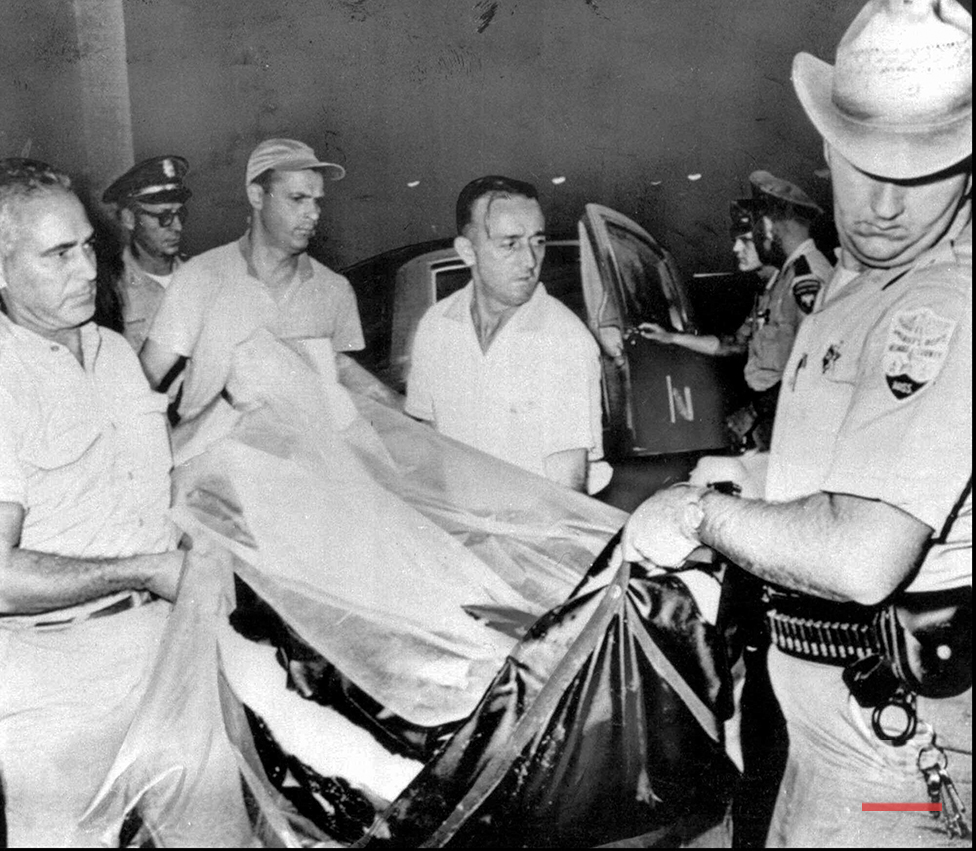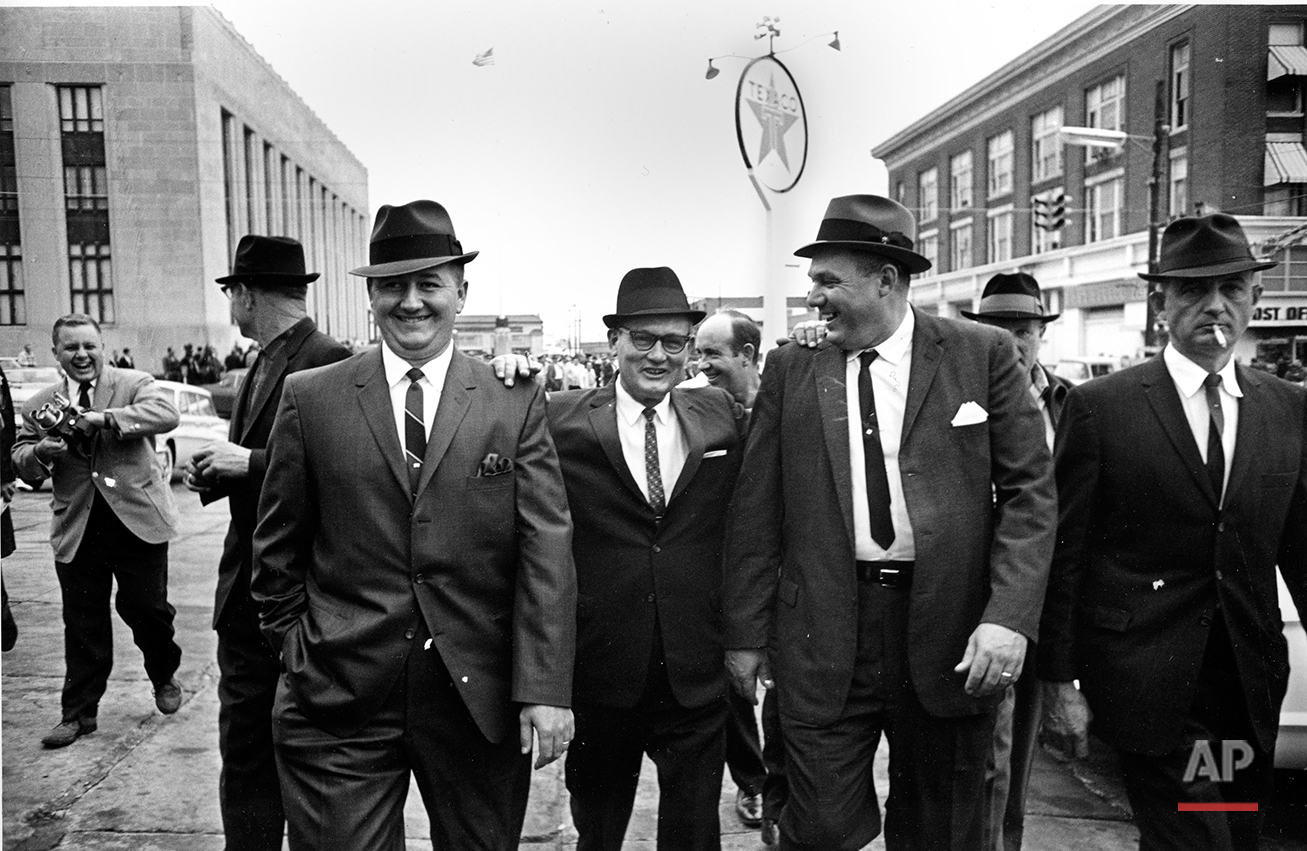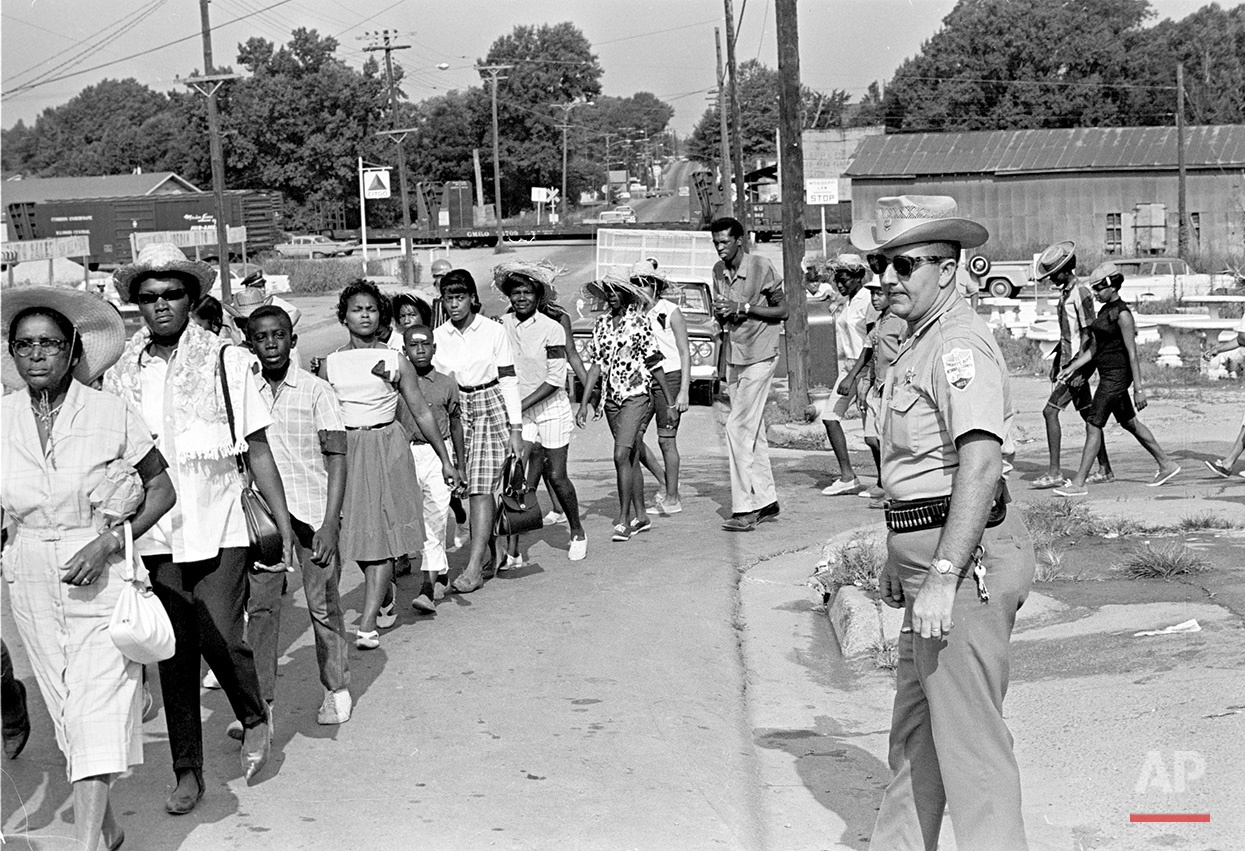Freedom summer murders of 1964

One day before the 52nd anniversary of the slayings, Mississippi Attorney General Jim Hood announced he is closing the investigation into the killings of three civil rights workers in 1964 -- a case which served as the basis for the movie "Mississippi Burning."
The decision "closes a chapter" in the state's divisive civil rights history, Mississippi Attorney General Jim Hood said.
"The evidence has been degraded by memory over time, and so there are no individuals that are living now that we can make a case on at this point," Hood said.
He said, however, that if new information comes forward because of the announcement that the case is closed, prosecutors could reconsider and pursue a case.

The 1964 killings of James Earl Chaney, Andrew Goodman and Michael Schwerner in Neshoba County sparked national outrage and helped spur passage of the 1964 Civil Rights Act. They later became the subject of the movie "Mississippi Burning."
Mississippi native Chaney, a 21-year-old African American, along with two white New Yorkers -- Goodman, 20, and Schwerner, 24, were beaten to death near Philadelphia, Miss., on June 21, 1964. Their bodies were found weeks later buried in an earthen dam.
The three young men had been registering black voters in Mississippi when they were arrested by Neshoba County law enforcement, imprisoned for several hours and then released into the hands of members of the Ku Klux Klan. Subsequent court cases outlined a conspiracy between the Klan and Neshoba County officials.
In 1967, seven men were convicted on federal conspiracy charges and given sentences of 3-10 years, but none were tried for murder and none served more than six years.
The presiding judge, William Cox, was quoted as saying "They killed one n----r, one Jew and a white man. I gave them all what I thought they deserved."
Eight other men were acquitted by all-white juries, while three others ended in mistrials -- including the trial of presumed ringleader Edgar Ray Killen.
But in 2005, Killen was retried after new evidence was uncovered. He was charged with three counts of murder and on June 21, 2005 -- the 41st anniversary of the murders, he was convicted on three counts of manslaughter and sentenced to 60 years in prison -- the maximum sentence.
The Neshoba County judge who presided over Killen's conviction, Marcus Gordon, died last month at age 84.
A grand jury failed to indict seven other living members of the original group of suspects.
Hood said Monday the U.S. Department of Justice released its findings in a 48-page report which prompted his decision to close the case.
"I think that everything has been done that could possibly be done," Hood said during a news conference, adding that the decision "closes a chapter" in Mississippi's shameful civil rights history.
Charges against James "Pete" Harris and Jimmy Lee Townsend, two of the original suspects, had been considered, Hood said. Harris allegedly recruited members of the KKK in Meridian to participate in the murders, while Townsend served as a lookout of sorts while other KKK members went to kill the three civil rights workers.
"For those participants, the good Lord will have to deal with that," Hood said.
Hood says the U.S. Department of Justice recently released findings to his office that led to the decision to close the case. He presented to reporters a 48-page report by the FBI which outlines the federal investigation that ultimately led authorities to conclude the deaths were part of a Ku Klux Klan conspiracy authorized by Sam Bowers, a Mississippi Klan leader who lived in Laurel.
In 1967, eight people were convicted of federal civil rights violations related to the killings of the three workers. In 2005, Hood and the Neshoba County prosecutor won three manslaughter convictions against white supremacist Edgar Ray Killen, who remains in prison.
Hood said officials had considered possible cases against Jimmy Lee Townsend and James "Pete" Harris. Townsend, 69, declined comment Monday when reached by telephone. The Associated Press could not locate Harris.
All surviving suspects were presented to a grand jury in 2005, Hood said, with grand jurors indicting only Killen. He said not enough new evidence has been developed since then for him to believe anything could change.
"I think that everything has been done that could possibly be done," Hood said.
Harris allegedly recruited members of the KKK in Meridian to kill the three men and Townsend allegedly remained with a disabled car on the night that other Klansman went carry out the slayings.
Deputy Assistant U.S. Attorney General Vanita Gupta, head of the Justice Department's Civil Rights Division, acknowledged Hood's decision.
"Mississippi Attorney General Hood has determined that despite one of the most intensely investigated and documented underlying investigations of any racially-motivated murder during the 1960s, followed by the exhaustive efforts of more recent reinvestigations, the passage of time has simply rendered additional prosecutions impossible," Gupta said in a statement.
"While legal and factual impediments sometimes prevent us from bringing cases we wish that we could," Gupta continued, "the Civil Rights Division remains dedicated to pursuing racially-motivated crimes wherever the facts allow.
"Chaney, Goodman and Schwerner gave their lives while struggling to advance the cause of civil rights for all. Though the reinvestigation into their heinous deaths has formally closed, we must all honor their legacy by forging ahead and continuing the fight to ensure that the founding promise of America is true for all of its inhabitants."
Monday, their relatives said the focus should not be only on the three men, but on all the people killed or hurt while seeking justice.
"The civil rights period was not about just those three young men," said the Rev. Julia Chaney Moss, Chaney's sister and a New Jersey resident. "It was about all of the lives."
The famous case is one of more than 125 unsolved cases from the civil rights era that the FBI re-examined after launching its "Cold Case Initiative" in 2006. Congress set aside millions of dollars in 2007 through the Emmett Till Unsolved Civil Rights Crime Act for such investigations. But most of those cases haven't resulted in prosecution.
The 1964 slaying of the black owner of a shoe shop in Ferriday, Louisiana, has resulted in no prosecutions despite news articles linking a man from Rayville, Louisiana, to the crime. The Justice Department in 2011 closed an inquiry into the 1965 killing of a Pelahatchie, Mississippi, man who was shot by a constable, despite witnesses who question the officer's version of events.
"While legal and factual impediments sometimes prevent us from bringing cases we wish that we could, the Civil Rights Division remains dedicated to pursuing racially-motivated crimes wherever the facts allow," Vanita Gupta, head of the Justice Department's Civil Rights Division, said in a statement Monday.
Rita Bender, Schwerner's widow, said she hopes the decision will spark further reflection in Mississippi about the state's legacy of prejudice. She said she believes state leaders haven't learned the lesson of the slayings, because Mississippi is still flying a state flag with the Confederate battle emblem, legislators recently passed a bill that Bender says enables discrimination against gay people, and she said the state does a poor job in providing services to African-American citizens.
"As a nation, we have to come to terms without our racist past and our continuing inability to move past it," said Bender, a lawyer in Seattle.
Text from AP news story, Prosecutor: 'Mississippi Burning' civil rights case closed, by Jeff Amy.
Spotlight is the blog of AP Images, the world’s largest collection of historical and contemporary photos. AP Images provides instant access to AP’s iconic photos and adds new content every minute of every day from every corner of the world, making it an essential source of photos and graphics for professional image buyers and commercial customers. Whether your needs are for editorial, commercial, or personal use, AP Images has the content and the expert sales team to fulfill your image requirements. Visit apimages.com to learn more.
Written content on this site is not created by the editorial department of AP, unless otherwise noted.
AP Images on Twitter | AP Images on Facebook | AP Images on Instagram
Visual artist and Digital Storyteller at The Associated Press
























